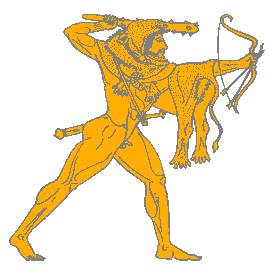
 HELEN OF TROY: Goddess, Princess, Whore by Bettany Hughes
HELEN OF TROY: Goddess, Princess, Whore by Bettany HughesHistory is a filiopietistic undertaking. Each generation establishes its credentials by killing off the understandings of its predecessors. The more sensational the revision, the better. Here's an example:
From the Independent:
Read the whole thing here.For centuries, Helen of Troy has been portrayed as a woman whose beauty was so great that it caused a war. Revered for her flowing hair and breathtaking features, she eloped with Paris, sparking the siege of Troy after her husband raised an army to take her back.
But, more than 3,000 years after events described in The Iliad, Helen is to undergo a dramatic historical reappraisal. According to a controversial new book, she was more likely to have been a shaven-headed, bare-breasted warrior princess whose appetite for sex was matched only by her insatiable bloodlust.
What are we to make of this? There is no agreement that Helen ever existed. She may well have been a metaphor. And the circumstances in which she is presented, the Trojan war and its prequel, are a literary construct, not historical fact. In essence, we know absolutely nothing about her and very little about the world she supposedly inhabited, so our imaginations are free to roam. Each generation can construct its own version of Helen. This is merely the latest.
So what has today's zeitgeist produced? A punk gurl power version of the myth. What next? A Goth or slacker Achilleus? Whatever....
Somebody's been watching too many Xena reruns.
RELATED:
The Times has a much more perceptive, far less sensationalistic review of the same book which they pair with a biography of Heracles.
HERCULES: Scenes from an Heroic Life by Alastair Blanshard
Many years ago, when I was teaching Western Civilization, I used to do a lecture segment on Heracles in which I presented him not just as a classical hero, but as an epitome of the Bronze Age chariot warrior, and also as a serial spree killer. These three aspects are all present in Blanshard's work and help to illuminate the linemants of a culture that is at the same time familiar, and yet utterly alien, to our own.
Read the Times reviews here.
No comments:
Post a Comment